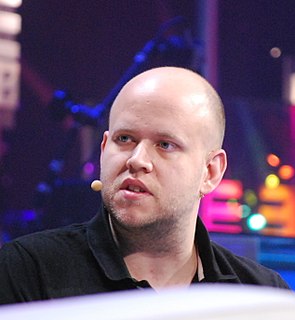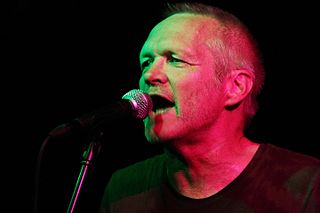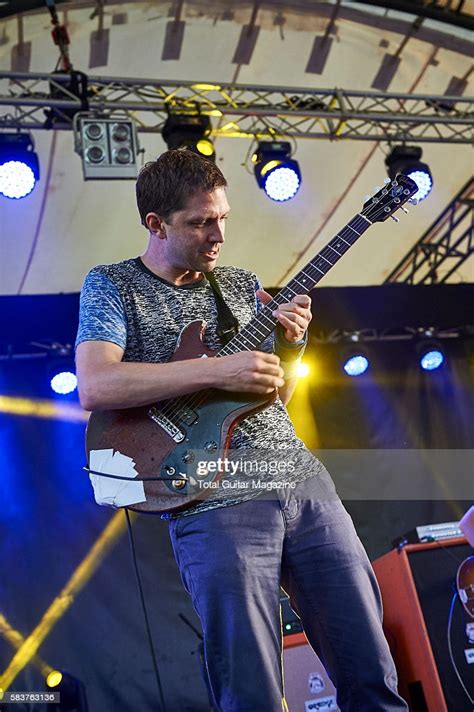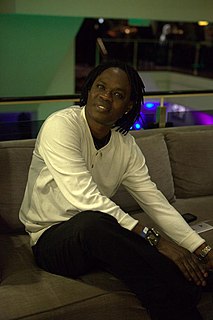A Quote by St. Lucia
It sounds kind of cliche, and a lot of people say it about our music, but I think a good place to hear our music for the first time is on vacation, or somewhere warm, on the beach or something like that.
Related Quotes
We kind of look at music as something very natural in people's lives. I mean, most of us can relate to music in some sort of shape and form, and if you think about it, most of us remember the first time we kissed someone, what kind of music was playing or the song that was playing on our friend's birthday.
I think I'm really part of a whole generational movement in a way. I think a lot of other people since and during this time have gotten interested in writing what we can still call experimental music. It's not commercial music. And it's really a concert music, but a concert music for our time. And wanting to find the audience, because we've discovered the audience is really there. Those became really clear with Einstein on the Beach.
I think my music being referred to as "cinematic" has a lot to do with people just not being used to listening to instrumental music without watching a film. I'm still pretty convinced of that. You'll play Chopin in place of something average and like, "Wow, that'd be great in a film." People say it every time, swear to God. I don't think people have a good relationship with instruments and music anymore. But it's definitely visual; I started writing with this band because of the pictures. I can't really deny it either, you know?
A lot of people ask me where music is going today. I think it's going in short phrases. If you listen, anybody with an ear can hear that. Music is always changing. It changes because of the times and the technology that's available, the material that things are made of, like plastic cars instead of steel. So when you hear an accident today it sounds different, not all the metal colliding like it was in the forties and fifties. Musicians pick up sounds and incorporate that into their playing, so the music that they make will be different.
Through the music and words we, as the band The ex, express our thoughts and opinions and ideas. It is not always totally necessary for our audience to clearly hear and understand every line I sing. The power and impact, the positive energy of the music are as much part of the whole thing as the words. We are not trying to convert people, but we believe in our music and like to play it in front of other people, hoping that we can get them as excited as we are about our music.
I think whatever we've done as a band at The Clientele, we've done because it's so natural. Our "old" sound isn't really like any actual bands from old times. We take elements of past music styles and past sounds as a way to... this is going to sound very pretentious and perhaps overly thought-out, but as a way to strike chords of vague nostalgia, and strike chords of, "I've heard this before somewhere." That's what a lot of our music is about in terms of the words and ideas behind it, so we really use old sounds as a way to serve that agenda.
Our whole mission is about breaking the rules. Cibo Matto doesn't fit into any one genre and when people ask about what kind of genre is it, it's hard to say. We try to do a lot of stuff. People like to categorize, basically. So we always have trouble giving an answer. Pop music has a lot of different elements of music. Even polka too.
I did not like that name "world music" in the beginning. I think that African music must get more respect than to be put in a ghetto like that. We have something to give to others. When you look to how African music is built, when you understand this kind of music, you can understand that a lot of all this modern music that you are hearing in the world has similarities to African music. It's like the origin of a lot of kinds of music.
Electronic music was just discovery about sound, all our sound options. The core percussions and melodies, they forget about it, they didn't think about those those for a good four, five years, because they were just discovering the new tools and what they could do with them, you know? The big folk revival, I think is a backlash against that. And now, I think they'll probably try to find somewhere in the middle. It's interesting. It's like push-and-pull. It's always like that, you know? Music history is always like that, this repeating evolution of music.
Music, that has mostly earned a 'film music' status in our country, leaves genres like jazz, folk and classical to the niche. But, something common ties all the genres of music, the skeleton of the sounds - the instruments. Instrumentalist in our country are not given their due, at least not as much as they deserve.



































